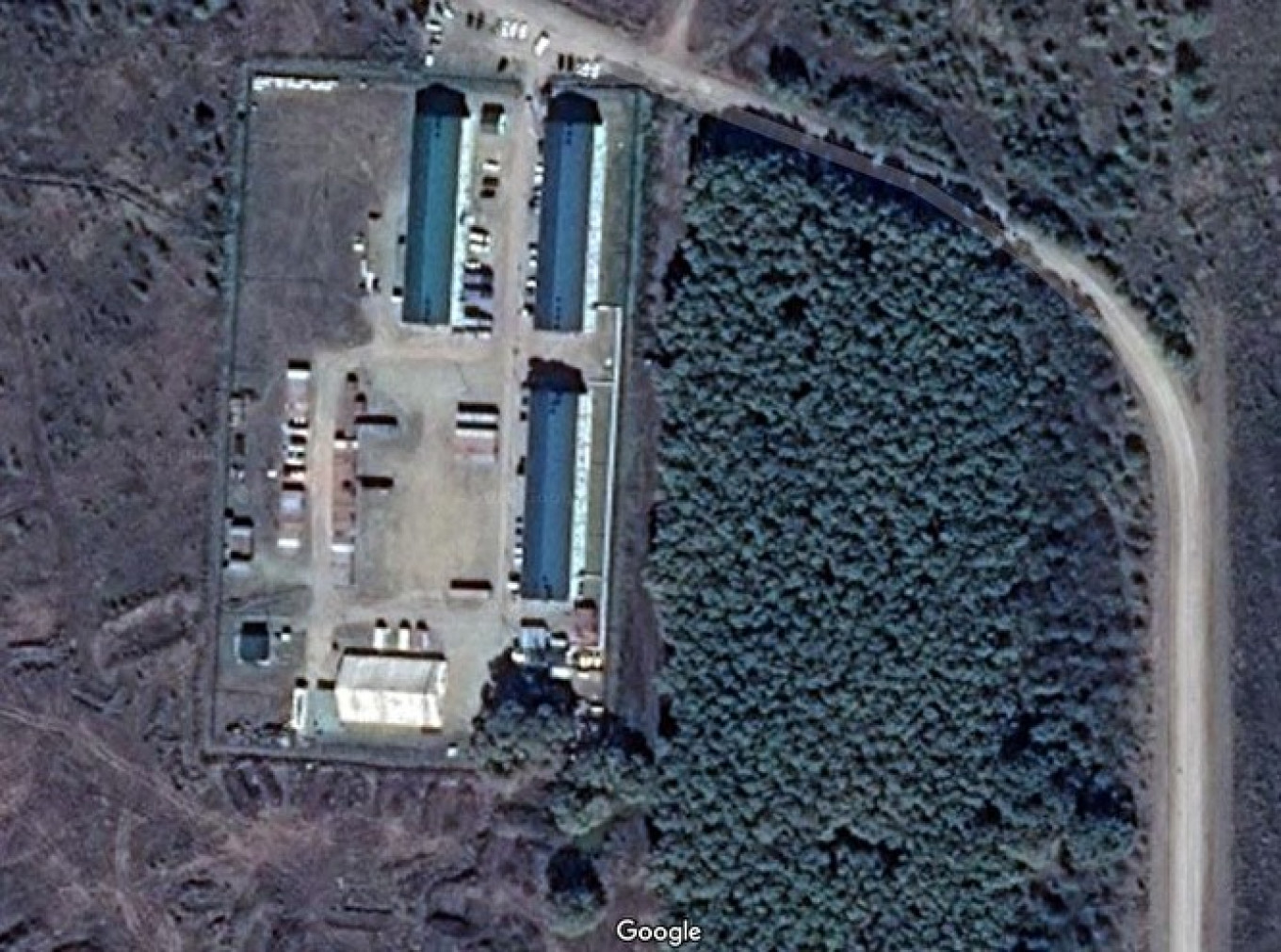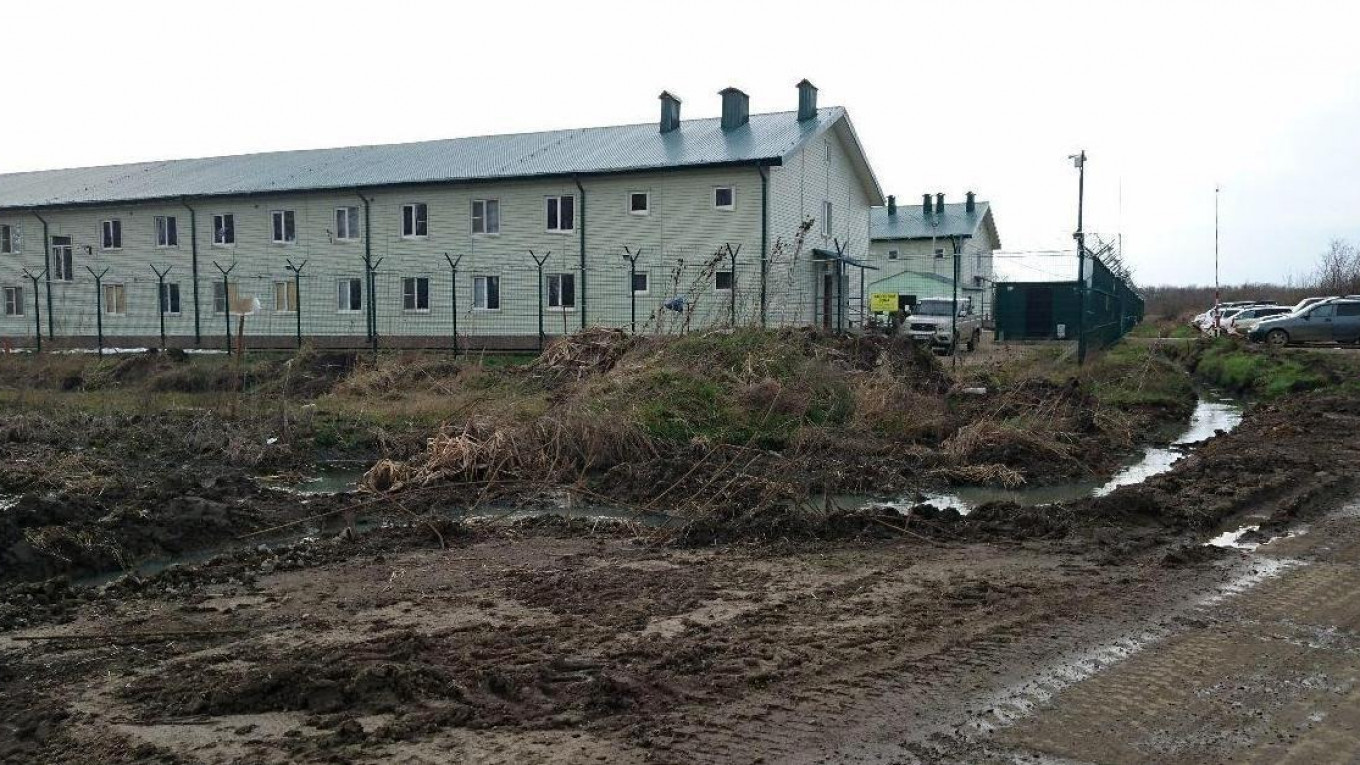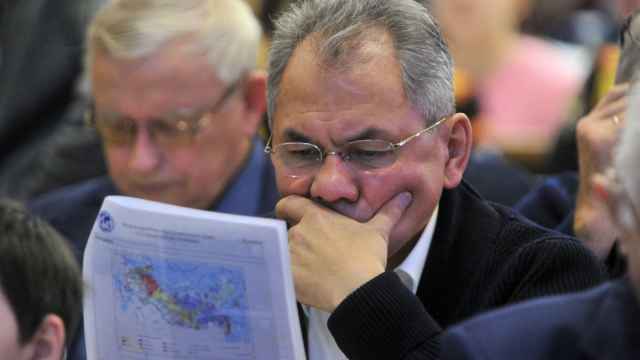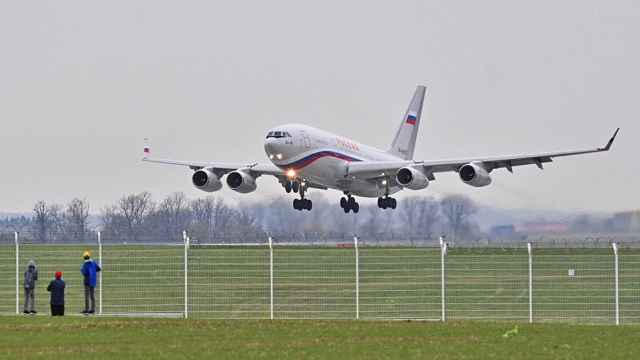Behind the perimeter of a Defense Ministry base in southern Russia stand three barrack buildings where two witnesses say they have seen private fighters being billeted before they are dispatched to fight in Syria for President Bashar Assad.
Yet on paper, the barracks have nothing to do with the Russian defense ministry: court documents list them as a children's vacation camp.
And the construction of the buildings was commissioned by an obscure private company, Megalain, without the publicly available paper trail that is legally required for projects funded by public money.
Megalain is a firm linked to Russian businessman Yevgeny Prigozhin, who has appeared on a U.S. sanctions blacklist for his dealings with the Russian Defense Ministry.
Reuters was unable to establish Prigozhin's role, if any, in the construction project and could not determine how Megalain was selected to build the facility or who paid for it.
But the secrecy surrounding the purpose of the buildings erected on Defense Ministry land is an example of how companies involved in the covert campaign in Syria, where private fighters support Russia's military, camouflage their activities.
That military intervention has been decisive in turning the tide of the war in favor of Moscow's ally, Assad.
A significant part of the fighting is conducted by private military fighters who operate in coordination with the Russian defense ministry, dozens of people familiar with the deployment of Russian fighters to Syria have told Reuters.
The barracks near the village of Molkino in southern Russia were a staging post for these fighters, according to one person close to them who stayed in the buildings, and a second person who visited the site.
The person close to the fighters also said that a photograph shown to him by Reuters, which appeared on the website of one of the companies involved in the construction project, was of a building used by the fighters.
Russian military officials did not respond to a request for comment on the purpose of the facilities in Molkino.
Kremlin spokesman Dmitry Peskov said the presidential administration knows nothing about the construction of the barracks and that "it was not our issue."
Megalain did not respond to a written request for comment and there was no answer on any of the phone numbers listed for the firm.
Concord Management and Consulting, Prigozhin's main business, said questions submitted by Reuters "have no relation to reality."
"We consider the agency itself to be a biased media outlet," it said.
Private fighters and denials
Reuters has documented over several years how private combatants are fighting and dying in Syria, and that they are using logistical support and infrastructure provided by the Russian Defense Ministry.
Russian officials have previously denied that these fighters have any connection to the state. They have said any Russians fighting in Syria on the government side are private citizens who are there as volunteers.
The buildings, completed in 2015, are on the territory of a Russian military intelligence base, and to gain access to it vehicles have to pass through a checkpoint manned by armed soldiers in Defense Ministry uniforms, Reuters reporters observed when they visited the site.
The existence of the buildings is disclosed in court documents seen by Reuters which describe a legal dispute between Megalain and a contractor called Sevzapstroi involved in the construction.
In its ruling, the court describes one of the buildings as a "pioneer camp" — a reference to Soviet-era summer vacation camps for children — and the other two buildings as temporary accommodation for the vacationers.
It cites an agreement between Sevzapstroi and TD Vivahaus, a sub-contractor on the project, as the source of the descriptions.
A manager from Vivahaus, a construction firm which court documents show was hired by Sevzapstroi to carry out some of the work, told Reuters it was required to fake the purpose of the buildings in official paperwork it filed relating to the project.

Concord Management and Consulting was majority-owned by Prigozhin from 2003-2011, according to the database.
At the time of the transaction with the Molkino facility, Concord was owned by Prigozhin's mother. She is not listed any more. From 2017, Prigozhin himself became the owner again, the database showed.
The second Megalain co-owner, Lakhta, was founded in 2003 by Yevgeny Prigozhin, who at the time was the sole owner, the database showed.
Lakhta was owned from 2013 to 2018 by Svetlana Sobirova. She was sales manager of the Lakhta Park real estate project, which, according to Spark, is owned by Yevgeny Prigozhin's wife, Lyubov.
Reached by telephone, Sobirova said she no longer works for Lakhta Park and declined to comment further. An employee of Lakhta Park said he could not comment and the firm did not respond to a written request for comment.
A manager for Vivahaus said on Thursday the firm could not comment because all the staff working in the company in 2015 had since left.
Reuters received no response to requests for comment sent to Prigozhin's wife and mother, via Concord.
Picture of building
Prigozhin was put on a U.S. sanctions blacklist in 2016 for "extensive" business dealings with the Russian Defense Ministry.
A U.S. federal grand jury last year indicted Prigozhin and 12 other Russians, alleging that he funded a conspiracy to interfere with the 2016 U.S. presidential election.
Prigozhin has in the past told Russian media he was not worried about the U.S. measures against him because he has no business interests in the United States and does not plan to travel there.
The U.S. State Department and the U.S. Treasury Department, which administers sanctions, did not respond to questions about Prigozhin.
TD Vivahaus's internet site, in a section showing off its portfolio of work to prospective clients, had a picture of a building exactly matching one of the structures in the court documents.
The site said only that it was a "residential building" in Molkino, without giving details.
Reuters showed the photograph to one of the two witnesses, a person close to the group that organizes the private combatants and who has stayed at the group's camp in Molkino.
He told Reuters the building in the photograph was part of the camp used for the fighters.
The second person visited the camp on two occasions last year when he was looking for information about his son, who left for Syria to fight with private combatants.
Later the father learned that he had died. The father also had a friend working for military intelligence at the camp adjacent to the barrack buildings.
The father described to Reuters the exact location of the facilities, and his description matched the location of the buildings paid for by Megalain.
"We had an agreement with the client that we'd write it would be a beautiful pioneer camp near the Black Sea," said the manager, who did not want to be identified because of the sensitivity of the issue.
He did not specify whether he was referring to his direct client Sevzapstroi or the ultimate client Megalain.
According to the court documents, Megalain transferred 86 million rubles ($1.4 million at the time) to contractor Sevzapstroi to construct the three buildings at Molkino.
Sevzapstroi has since ceased to exist and no one connected to the firm could be reached for comment.
At the time of the payment, Megalain was 50 percent owned by a company called Lakhta and 50 percent held by Concord Management and Consulting, according to Spark database, which collates official data on businesses from the tax service and the State Statistics Service.
A Message from The Moscow Times:
Dear readers,
We are facing unprecedented challenges. Russia's Prosecutor General's Office has designated The Moscow Times as an "undesirable" organization, criminalizing our work and putting our staff at risk of prosecution. This follows our earlier unjust labeling as a "foreign agent."
These actions are direct attempts to silence independent journalism in Russia. The authorities claim our work "discredits the decisions of the Russian leadership." We see things differently: we strive to provide accurate, unbiased reporting on Russia.
We, the journalists of The Moscow Times, refuse to be silenced. But to continue our work, we need your help.
Your support, no matter how small, makes a world of difference. If you can, please support us monthly starting from just $2. It's quick to set up, and every contribution makes a significant impact.
By supporting The Moscow Times, you're defending open, independent journalism in the face of repression. Thank you for standing with us.
Remind me later.







